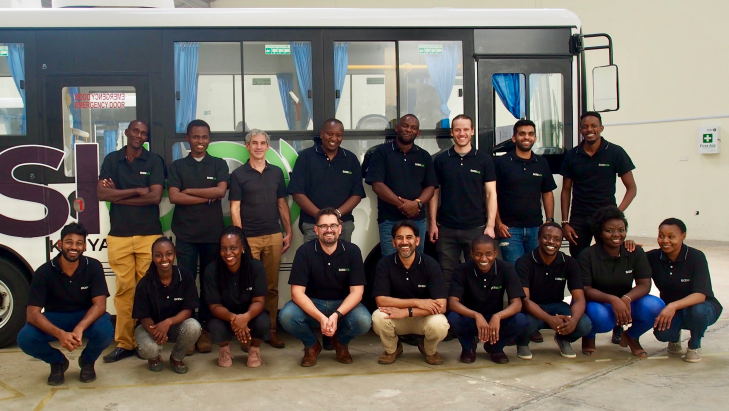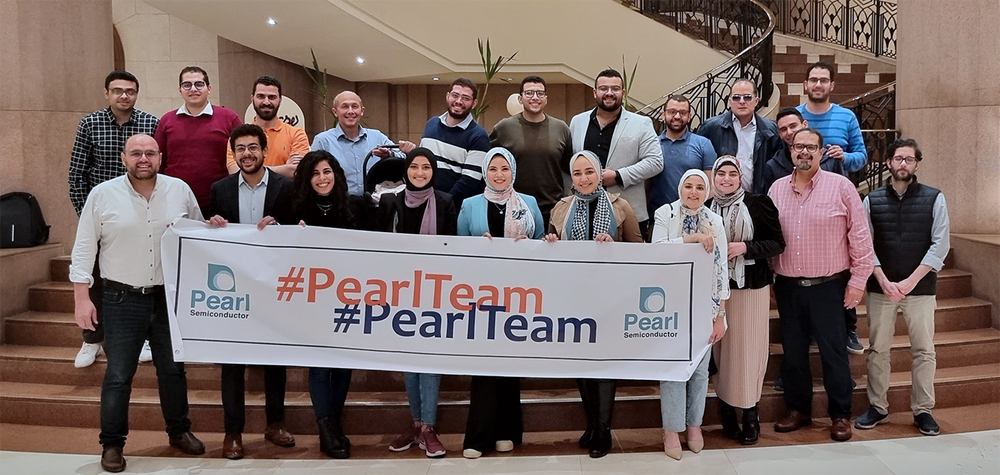Last week was marked by a flurry of funding activities, with a total of eight deals ranging from pre-seed to series B.
Notably, M-KOPA made headlines with its massive $255 million funding round, while Sabi secured an impressive $38 million in Series B funding, valuing the company at $300 million.
Pre-Seed

Amini, a Kenyan climatetech startup, has successfully raised $2 million in a pre-seed funding round. The round was led by Pale Blue Dot, with participation from Superorganism, RaliCap, W3i, Emurgo Kepple Ventures, and a network of angel investors.
Founded in 2023 by Kate Kallot, Amini has developed an innovative data aggregation platform. The platform gathers data from various sources, including satellites, weather data, sensors, and proprietary customer data, down to a square meter level. Amini then processes and unifies this data before making it available to local and international companies through APIs. These companies can access the data to meet their specific needs related to climate and environmental analysis.
The funding obtained will further support Amini’s efforts in providing accurate and comprehensive data solutions to businesses and organizations that require detailed climatic information.

YeneHealth, an Ethiopian FemTech startup, has secured an undisclosed pre-seed investment from The Case for Her, a women’s health investment fund based in Sweden.
Founded in 2022 by Kidist Tesfaye, YeneHealth offers a range of services focused on sexual and reproductive health. These include tracking tools for menstrual cycles, pregnancy, and medicine, an e-pharmacy tailored to women’s needs with discreet ordering and delivery/pickup options, telemedicine services, and culturally responsive resources and educational content.
With this investment, the startup aims to expand its reach and further enhance its product offerings, making a positive impact on women’s health in Ethiopia and beyond.
Seed

Jia, a blockchain-based fintech startup, has successfully raised $4.3 million in seed funding, along with an additional $1 million commitment for on-chain liquidity. The funding round was led by TCG Crypto, with participation from BlockTower, Hashed Emergent, Saison Capital, Global Coin Research, and angel investors Packy McCormick, Anand Iyer, Jared Hecht, and Rory Eakin.
Founded in 2022 by Cheng Cheng and Zach Marks, Jia focuses on providing loans to micro and small businesses in emerging markets. Upon repayment, borrowers receive tokens that can be redeemed based on Jia’s profits. Currently, the tokens are packaged as Jia points, which borrowers can utilize as security for lower interest rates, higher loan amounts, and more flexible loan terms.
With the raised funds, Jia aims to strengthen its operations in Kenya and the Philippines before expanding into new markets in West Africa, Latin America, and Asia.

Figorr, a Nigerian-based cold chain startup, has successfully raised $1.5 million in seed funding. The funding round was led by Atlantica Ventures, with participation from VestedWorld, Jaza Rift Ventures, and Katapult VC.
Founded in 2017 by Oghenetega Iortim, Figorr (formerly known as Gricd) offers IoT-powered solutions that empower businesses, particularly those in the healthcare and agriculture sectors, with critical data such as location, humidity, and temperature of highly-perishable products. This visibility enables entrepreneurs to mitigate losses caused by inadequate information.
In addition to its existing services, Figorr plans to launch a risk management platform by the end of the year. This platform will provide insurance companies with the necessary data to develop tailored products for their customers, further enhancing the value proposition of Figorr’s offerings.

Nkwa, a Cameroon-based fintech startup, has successfully secured a seed funding of $15,000 from the Cameroon Angels Network (CAN).
Founded in 2020 by Akwo Ashangndowah Ngwashie, Nkwa is dedicated to promoting financial inclusion through its mobile app. The app fosters a culture of saving among users, enabling them to work towards their financial goals. Notably, the app has already facilitated savings of approximately 2 billion francs CFA, which has been utilized for various purposes such as purchasing work equipment, debt repayment, and funding vacations.
The newly acquired funds will be instrumental in expanding Nkwa’s operations and further enhancing the development of its product.
Series A

Chari, an e-commerce platform based in Morocco, has successfully secured a second round of undisclosed investment from Plug and Play.
Established in 2020 by Ismael Belkhayat and Sophia Alj, Chari offers retailers the opportunity to directly purchase a substantial inventory of FMCG products from both multinationals and local manufacturers, ensuring delivery within 24 hours.
This latest investment comes after Chari’s previous funding rounds and acquisitions in 2022, including a $1 million investment from Orange Ventures in February.
Series B

Sabi, a Nigerian e-commerce startup, has successfully raised $38 million in a Series B funding round from CommerzVentures, Norrsken22, Fluent Ventures, Proof VC, CRE Ventures, and Jaango, resulting in a valuation of $300 million for the company.
Founded in 2020 by Ademola Adesina and Anu Adasolum, Sabi operates a digital marketplace that enables businesses to connect with distributors and producers for online buying and selling of products or services.
The platform also offers various tools such as inventory management, sales order management, and digital ledger and payment reconciliation to help streamline business operations.
Debt financing

M-KOPA, a Kenyan asset financing platform, has successfully secured $255 million in new funding. This includes $55 million from a growth equity round led by Sumitomo Corporation and $200 million in debt financing led by Standard Bank Group.
Founded in 2011 by Nick Hughes, Chad Larson, and Jesse Moore, M-KOPA operates as a digital micropayments platform, providing access to “productive assets” for underbanked customers in Africa. The company offers financing options for a range of products, including smartphones, solar power systems, loans, and health insurance. Its flexible credit model allows customers to make small deposits and repay their purchases through micro-installments, enabling them to build credit histories.
With the funding received, M-KOPA plans to expand its financial services offerings and product range. Additionally, the company aims to reduce greenhouse gas emissions in Kenya and Uganda, where its solar product is widely used.





